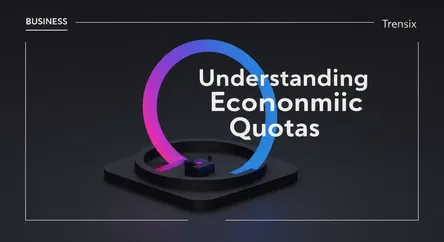Business
Understanding Economic Quotas

Learn what economic quotas are. These government limits on imports protect domestic industries but can also impact consumer prices and global trade.
What is it?
A quota is a government-imposed trade restriction that limits the number or monetary value of goods a country can import or export during a specific period. They are a form of non-tariff barrier used to regulate the volume of trade. The primary goal of an import quota is to protect domestic industries from foreign competition by reducing the availability of cheaper foreign goods. This allows domestic producers to capture a larger share of the market, shielding them from the price pressures of international competition.
Why is it trending?
Quotas are increasingly relevant amid rising global trade tensions and a shift towards protectionist policies. Nations use them as tools in trade disputes, to safeguard national security interests for critical goods like technology, and to support local employment. As countries re-evaluate their supply chains due to geopolitical shifts, quotas have become a key instrument for controlling trade flows, encouraging domestic production, and strengthening economic alliances with specific partners, a concept often referred to as "friend-shoring."
How does it affect people?
For consumers, quotas typically mean higher prices and fewer choices, as the restricted supply of imported goods reduces market competition. This benefits domestic producers, who face less pressure from foreign competitors and can often sell their products for more. However, quotas can harm other domestic industries that rely on imported components for their own manufacturing. Furthermore, the country whose exports are being limited may retaliate with its own quotas or tariffs, potentially escalating into a trade war that disrupts global economic stability.